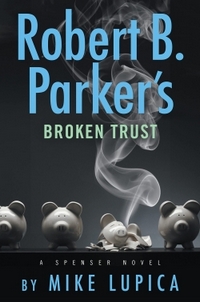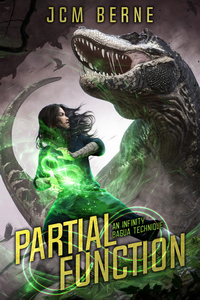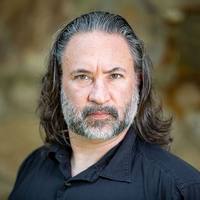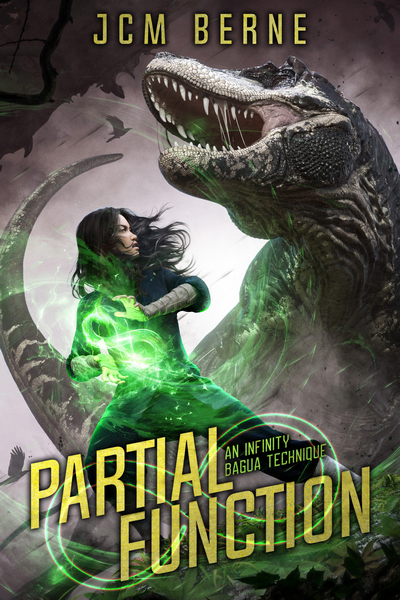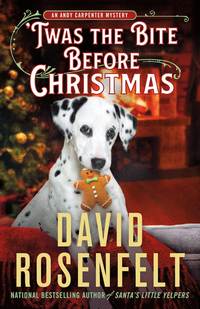It’s Publication Day for Partial Function by JCM Berne and what better way to commemorate it than with a Q&A with the author his own bad self?
Give us a quick origin story—how old were you when you caught the Writing Bug? What made you decide “I’m going to get serious about it now” (whenever that happened to be)? etc.
I wrote what we’d call fanfic (I had never heard the term) in elementary school, but I didn’t try to write an actual story until just after dropping out of grad school. I was inspired by RA Salvatore – The Cleric Quintet – and I wanted to write fantasy stories about dwarves. Something about his dwarves really struck a chord in my imagination. This was around 1998.
I wrote a couple of novels, went nowhere with them, and tried again in 2006. Self-publishing as we know it didn’t really exist back then, so I basically gave up. In 2019 I got the bug again – I had a little bit of time, and Invincible gave me the same writing itch that I’d gotten from Salvatore – and I wrote Wistful Ascending in one big burst, promising myself that I’d put it on Amazon even if it sucked. Which I did! (for the record, he ended up putting it on Amazon without it sucking)
What came first—the desire to take a break from The Hybrid Helix or this story? How important was it for you to take this break?
I didn’t exactly want to take a break. I wanted to write something more marketable – HH is a very tough sell, commercially (it’s a superhero story that doesn’t include superhero conventions like an origin story or supervillains, and it’s VERY hard to describe – count the reviews that say, “this isn’t what I expected!” – it’s a lot of reviews.) A lot of my target readers are much more into fantasy. And I really, really wanted to do better in SPFBO, which is totally an ego thing and not rational in any sense. AND I wanted something with less pressure. Every HH book gets harder, because I have to keep in mind the series-level story and the book-level story simultaneously. With a standalone I can drop all of that pressure.
So I decided to start from a killer pitch, instead of the weirdness that is Wistful Ascending, and write a straight fantasy (instead of superhero/sci-fi) with a straightforward narrative and see what happened. And I failed, because of course I did. I should have made Akina an Elven Ranger and set the story in a setting that could pass for an amateur D&D campaign. But I love fisticuffs and dinosaurs more than I love archery, and I had the worldbuilding basically done (it’s the same universe as HH, broadly speaking), and I didn’t want to take six extra months to do it.
Another aspect of doing something new was trying to write something cheaper. The HH books – with the cover artist, narrator, and editor I’m committed to – are huge money pits. I wanted the chance to release something that wouldn’t cost an arm and a leg. And I failed again, though Partial Function cost me a lot less than a HH book, it didn’t end up being anywhere near as bare-bones as I intended.
I’ve heard authors say that they learn something while writing each book. What did Partial Function teach you that The Hybrid Helix hasn’t? How was the experience different in this new world?
I learned that, once again, my sense for what other people will enjoy is not very good. I had very little confidence in this book. I mean, I knew I loved it, and I knew it did what I wanted it to do from a craft perspective, but I didn’t really think other people would like it. And so far, the reception has been really positive. People aren’t hung up on the weird stuff in the book as much as I thought.
It’s a nice feeling, but also disturbing, because it’s good to have people like your art, but it’s also a bummer to know I’m not good at judging my audience. I suppose I might as well just go on writing what I love and hoping.
You’ve described yourself as a “kitchen sink writer,” I used more words to describe it, and greatly prefer your pared-down version—what do you mean by that? Is that just who you are, or did you make decision along the way to become one? (I never expected to ask a nature vs. nurture question)
I have a lot of interests, in fiction and outside it, and I like to throw stuff from all of that into my books. Infinity bagua is actually a really interesting martial arts idea – bagua is a real martial art in which training is focused on walking in circles (I’m oversimplifying), and infinity walks are a real training tool used by some very serious coaches, so combining them isn’t actually as random and silly as it sounds. I’ve read a lot of manga and American comics and watched a LOT of martial arts movies, so I threw a lot of pieces from them into this.
It was never really a decision. If I try to write something more straightforward, without a lot of weird things thrown in – if I had tried to make this “Taken, but set in Shannara” – I get bored. This isn’t my day job: if the writing gets boring, I’ll quit. I have no idea what would change if this WERE my day job and I really had to write something commercial, but that’s a question for another lifetime.
I want to ask a couple of questions about Partial Function characters. I have a handful about Zhu, but…I can’t think of a way to ask them without spoiling something. So, what would you want a prospective reader to know about her? (basically, say whatever you want about Zhu)
I included Zhu because I was too lazy to draw a map. In fantasy novels, travel is a big thing – you have to have a map, measure distances, calculate the average distance a wagon can travel over rough terrain in a day, etc. etc. etc. I had no enthusiasm for that. So I gave everybody teleportation magic and let them hop around to my heart’s content.
Once I put Zhu on the team, she had to do more than just be a human taxi. She’s a teenager, so I made her snarky, because the day I write a non-snarky teenager is the day they can pull the plug on my life support. It’s low hanging fruit, basically. But I didn’t want to make her too obnoxious, or rebellious for its own sake, because those traits annoy me, so I tempered that out a bit.
The other piece of it is allowing us to see a little bit of Akina-as-a-mom. That part was mostly accidental, but I felt like it raised the stakes to see that side of her. I’ve seen the “I’ve got to rescue my kids because I was a negligent parent and it’s my way to work out my guilt” trope in other stories and I hate it. Akina was a good mom, in her own opinion, and she wanted her girls back because she loved them. Full stop.
After that, Zhu just became fun. Once I have a character’s voice in my head, it’s joy to give them their own dialogue, their own jokes, with their own timing and approach. Good jokes are character-specific (I learned that from Howard Tayler).
I talked a little bit about Remy in my original post about the book, and you told me he was important to you. Can you unpack that a bit?
I love all the main characters, but I feel like Remy is the least sexy. Sort of. People are desperate for action moms in fantasy – it’s something I’ve heard repeated – and people love competent younger characters coming into their own. And come on, everybody loves animal companions, especially when they’re adorable. But big guys who are good at fighting aren’t in short supply.
To me, Remy was important because of what he wasn’t, in some ways. He loves Akina with zero romantic or sexual intent, and vice versa. They’re genuine friends, and he’ll do anything for her, exactly the same way he’d have done anything for Petrik. And I like that kind of relationship. I feel like the expectation is that we find out halfway through that he would have had some spark for Akina and been pining after her for years, and I just wanted to pull the plug on that. He doesn’t want to have sex with Akina, at all, period. He just loves her, and she loves him, and that’s that.
Who are some of the bigger influences you have in your writing—this book and others—whether or not readers can see them, you know they’re there?
I’m 52 and I’ve been a compulsive consumer of media for about 42 of those years, so there’s an awful lot.
For writing style I have to say some RA Salvatore (who I forget to mention as often as I should) and Jim Butcher. But I was writing like this before Storm Front was published, so maybe that’s not quite right. Maybe my influences were more Glen Cook (PI Garrett Cook, not Black Company Cook, in terms of style) and Steven Brust.
I also take a lot from comics, too many to remember. Brubaker, Starlin, Chaykin . . . I wouldn’t know where to stop. Ellis. Moench. I had a bad habit when I was younger of buying comics and not paying attention to the creative team, so I didn’t even know who was influencing me, but they were.
And for this book in particular, I use a lot of movie influences. Taken, John Wick, Crouching Tiger, Hidden Dragon. Jurassic Park! And a lot of anime and manga. Those influences are big in HH, but maybe even bigger in Partial Function. I never wanted to see Wistful Ascending adapted to film (I mean, I wouldn’t say no, but it was never a thing I cared about) but I’d LOVE to see a series made of PF.
What’s next for JCM Berne, author? I’ve seen some things you’ve posted on social media sites, but I can’t tell how serious you’re being—and either way, I’m very intrigued.
I have a bad habit of getting excited about something, planning it, writing a chapter, then realizing the voice doesn’t work for me. Well, that’s not the bad habit, but posting about it on twitter IS. My progression fantasy about tiny dragons is a solid idea but I just didn’t enjoy writing it as much as I thought.
Right now I have three ongoing project. I’m going to continue the Hybrid Helix, because I haven’t even gotten to the point yet. I have no idea how long that will be, but I can’t imagine fitting the story I want to tell into ten or fewer books. 12? 17? We’ll see.
I wrote Partial Function as a standalone, and I didn’t deliberately throw anything in there that was meant to seed a sequel (unlike Wistful Ascending, which I wrote from the start as the entry point to a series). The story is over, and any sequel has to have a new story. I didn’t really have a good idea for that sequel until a couple of weeks ago, but now I think I have one. I might write that in December, or the next HH, I haven’t decided yet.
The third project is The Grimdwarf, a story about an immortal, cursed Dwarf who keeps trying to die in battle. It’s sort of an homage to Gotrek and Felix, except Felix is a woman and they have a dog. I’m playing with the structure, writing it almost like a manga. Some chapters are standalones, some are tied together into arcs, but I’m not building it into novel-length pieces – some arcs might be novel-length, but some might be much shorter, and I’m allowing that deliberately.
I have no idea what to do with this. It’s a story I love, personally, but I don’t know if other people will want to read it. Lots of punching, lots of banter, some worldbuilding, a touch of pathos. I might just give it away (say, a chapter a week) to patreon patrons or people who get my newsletter or just toss it onto Royal Road and say, “here you go!” A lot depends on reception. I will see how much I can get done this month – sort of a fake NanoWriMo (since it’s not really a novel) – and maybe get some alpha/beta readers to tell me if I should trunk it or not.
Thanks for your time—and thanks for Partial Function—I had such a blast with this and hope it finds the audience it deserves!
Thank you so much, HC! Positive critical reception is a huge part of why I’m still writing. I’m very glad you gave this book a chance.
Partial Function is out NOW—go grab yourself a copy.
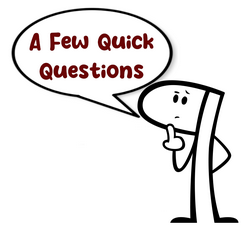
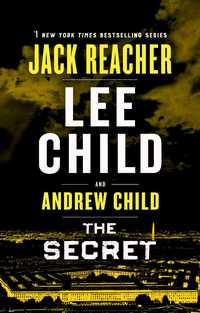 The Secret
The Secret

![]()



